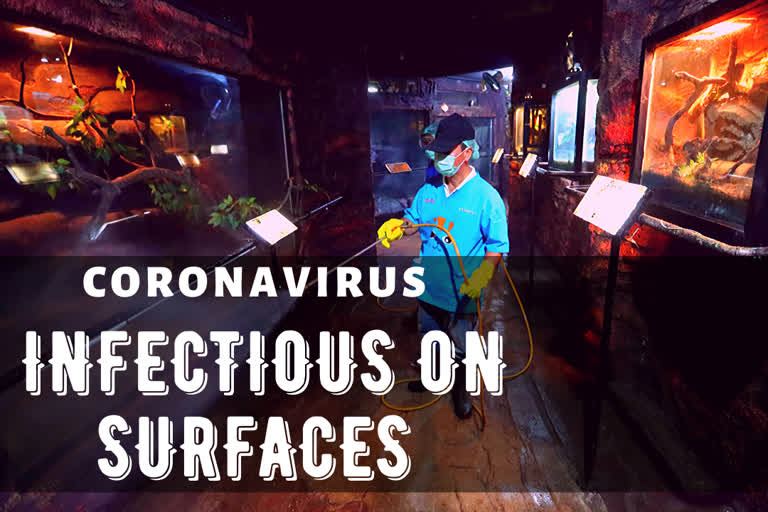Hyderabad: In the aftermath of the new coronavirus being officially recognized as pandemic, people across the globe are getting increasingly becoming helpless and often worried about getting exposed to the virus as they live their daily lifestyle.
Most people have had mild to moderate illness and recovered, but the virus is more serious for those who are older or have other health problems.
According to researchers, each infected person spreads to two or three others on an average. It spreads more easily than flu but less than measles, tuberculosis or some other respiratory diseases.
VIRUS ACTIVE ON DIFFERENT SURFACES
To understand the outspread of coronavirus, researchers found out how long this virus lasts on different surfaces outside the body of a living host.
Generally, coronavirus lasts 1-9 days on inanimate surfaces such as metal, rubber or plastic.
The virus can live in the air for several hours upto 24 hours on cardboard and upto two to three days on plastic and stainless steel. Cleaning surfaces with solutions containing diluted bleach should kill it.
AIR: The widely spread coronavirus remains infectious in air for up to 3 hours.
CARDBOARD: The virus can stay active on cardboard for up to 24 hours.
PLASTIC: Coronavirus can live on a plastic surface for 3 days.
STAINLESS STEEL: The living period of coronavirus on the surface of stainless steel is up to 3 days.
COPPER: As aerosolized particles, the virus remains viable or infectious on the copper surface for almost 4 hours.
POLYPROPYLENE: As aerosolized particles, coronavirus can stay infectious on the polypropylene surface for a time of 16 hours.
Droplets discharged from coughs are the most common ways through which this virus spreads. These droplets can move to almost six feet. If someone coughs or sneezes on a surface and the virus particles remain on them, it causes infection in the first 10 minutes to one or two hours.
The chances of getting infected by coronavirus this way from surface interaction are slim and social distancing and hygiene measures recommended by the World Health Organisation can be the best ways to avoid infection.
Read Also: How it spreads, infects: Coronavirus impact comes into focus



